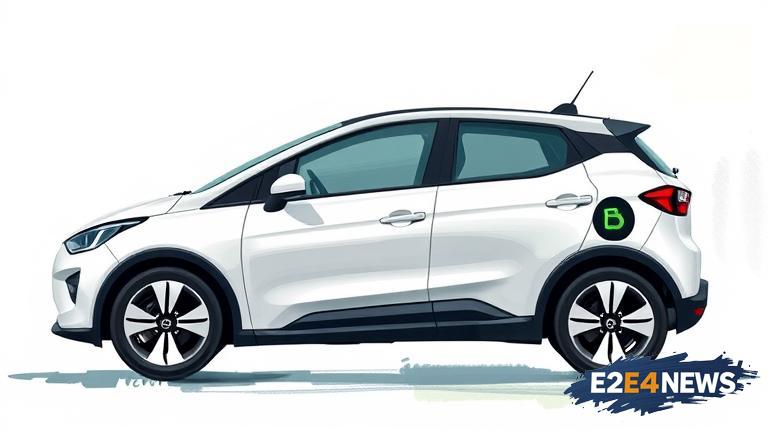The Indian government has announced a comprehensive plan to promote the adoption of electric vehicles (EVs) in the country. The plan includes a range of incentives and initiatives to encourage the use of EVs, including tax exemptions, subsidies, and investment in charging infrastructure. The government aims to have at least 30% of new vehicle sales be electric by 2030. To achieve this goal, the government will provide subsidies to manufacturers to produce EVs, as well as to buyers to purchase them. Additionally, the government will invest in the development of charging infrastructure, including the installation of charging stations along highways and in cities. The plan also includes measures to promote the use of EVs in public transportation, such as buses and taxis. The government will provide incentives to state governments to adopt EVs for public transportation, and will also encourage private companies to invest in EV-based transportation services. Furthermore, the government will establish a network of EV charging corridors along major highways, to facilitate long-distance travel by EVs. The plan also includes measures to promote the use of EVs in rural areas, where access to charging infrastructure may be limited. The government will provide subsidies to rural households to purchase EVs, and will also invest in the development of off-grid charging infrastructure. The Indian automotive industry has welcomed the government’s plan, and has pledged to work with the government to achieve the goal of 30% EV sales by 2030. Several major automotive companies, including Tata Motors and Mahindra & Mahindra, have already announced plans to launch new EV models in the Indian market. The government’s plan is expected to have a significant impact on the environment, as EVs produce zero tailpipe emissions and can help reduce air pollution in urban areas. The plan is also expected to have economic benefits, as it will create new jobs and stimulate investment in the EV sector. However, there are also challenges to be addressed, including the need for significant investment in charging infrastructure and the development of a skilled workforce to support the EV industry. The government has acknowledged these challenges and has pledged to work with the private sector to address them. Overall, the Indian government’s plan to promote EV adoption is a significant step forward, and has the potential to make a major impact on the environment and the economy. The plan is also expected to have a positive impact on public health, as EVs can help reduce air pollution and improve air quality. The government’s plan is a key part of its broader strategy to reduce greenhouse gas emissions and mitigate the impacts of climate change. The plan is also expected to have a positive impact on the country’s energy security, as EVs can help reduce dependence on fossil fuels and promote the use of renewable energy. The Indian government has set a target of generating 40% of its electricity from non-fossil fuels by 2030, and the promotion of EVs is a key part of this strategy. The plan is also expected to have a positive impact on the country’s economy, as it will create new jobs and stimulate investment in the EV sector. The government has estimated that the EV sector could create up to 50,000 new jobs by 2025, and could attract investment of up to $10 billion. The plan is a significant step forward for the Indian government, and has the potential to make a major impact on the environment, the economy, and public health.
